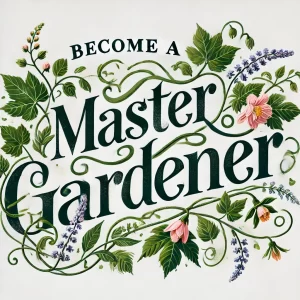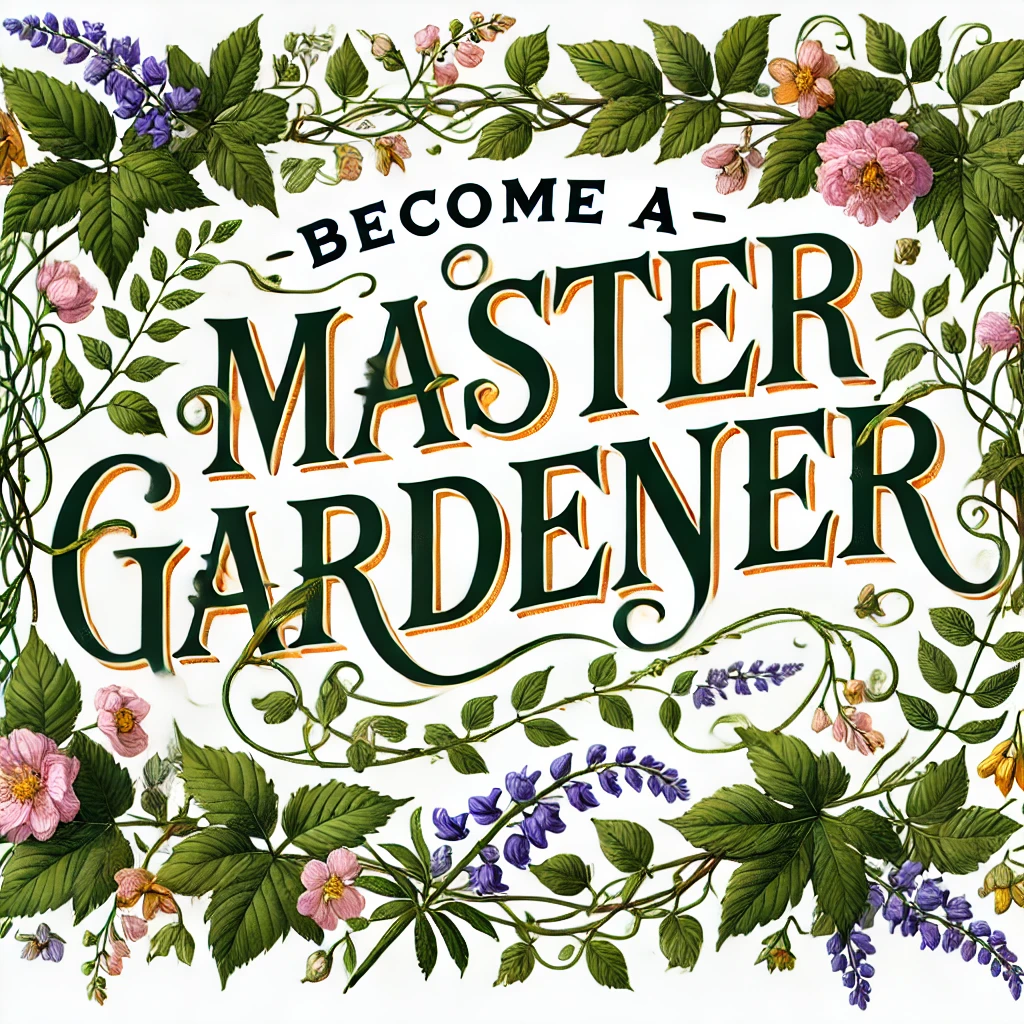 If you’ve dreamed of turning your love of plants, soil, and outdoor spaces into recognized expertise, working toward becoming a Master Gardener in Alberta can be an incredibly rewarding journey. From structured training and volunteering to acquiring specialized horticultural knowledge, there are a variety of opportunities to boost both your garden and your skillset. In this guide, we’ll walk you through the steps, highlight available educational programs, and outline the benefits, outcomes, and activities you can pursue once you are a Master Gardener. We’ll also recommend several authoritative books to support your ongoing learning.
If you’ve dreamed of turning your love of plants, soil, and outdoor spaces into recognized expertise, working toward becoming a Master Gardener in Alberta can be an incredibly rewarding journey. From structured training and volunteering to acquiring specialized horticultural knowledge, there are a variety of opportunities to boost both your garden and your skillset. In this guide, we’ll walk you through the steps, highlight available educational programs, and outline the benefits, outcomes, and activities you can pursue once you are a Master Gardener. We’ll also recommend several authoritative books to support your ongoing learning.
What is a Master Gardener?
A Master Gardener is more than just a green thumb. They are community educators, horticultural experts, and dedicated volunteers who share research-based gardening information with the public. In Alberta, Master Gardeners often work closely with botanical gardens, garden clubs, schools, and community organizations, helping to promote sustainable gardening practices and horticultural literacy.
Benefits of Becoming a Master Gardener
1. In-Depth Horticultural Knowledge:
Gain advanced understanding of plant health, soil management, pest control, plant breeding, and landscape design. Your skills won’t just improve your own garden—they’ll help you advise others too.
2. Community Connection:
Master Gardeners become part of a supportive network of like-minded enthusiasts. You’ll connect with fellow gardeners, local horticulturists, and community leaders, contributing to projects that enhance public green spaces.
3. Professional Development:
Whether you’re considering a career in landscaping, horticulture, environmental education, or garden center management, becoming a Master Gardener can open doors. Employers often value the expertise and dedication Master Gardeners bring.
4. Personal Fulfillment:
There is immense satisfaction in watching your gardening endeavors thrive, knowing you possess the knowledge and skills that benefit both your personal environment and the larger community.
 What Can You Do as a Master Gardener?
What Can You Do as a Master Gardener?
Once you’ve achieved your Master Gardener certification, a variety of rewarding opportunities open up:
- Volunteer in the Community: Assist with local community garden projects, help design and maintain educational garden plots, and mentor new gardeners.
- Teach & Educate: Lead workshops and presentations for garden clubs, community groups, and schools. Offer guidance on topics like native plant selection, composting, and water conservation.
- Partner with Local Organizations: Collaborate with botanical gardens, horticultural societies, and non-profits to support outreach programs, plant sales, and public lectures.
- Advise Home Gardeners: Provide expert tips through helplines, social media groups, and local gardening events, helping neighbors and community members troubleshoot plant issues.
- Explore Career Opportunities: Apply your skills in professional settings such as landscaping firms, nurseries, garden centers, or public green spaces, potentially stepping into roles as horticultural consultants, educators, or garden managers.
- Further Specialize: Focus on a particular area of interest—such as greenhouse production, permaculture, or ecological restoration—and become a go-to expert in that niche.
The Path to Becoming a Master Gardener in Alberta
1. Meet the Prerequisites:
Generally, you need a strong interest in gardening and a willingness to commit to coursework and volunteer hours. Prior experience is helpful, but not always required.
2. Select a Recognized Program:
In Alberta, several institutions and organizations offer Master Gardener or related horticultural training. You can also consider supplemental learning from well-regarded programs outside Alberta, such as Dalhousie University, or attend courses at community-based organizations like Red Brick Common.
3. Complete the Coursework:
Expect to invest time in comprehensive classes that blend theory and hands-on learning. Topics often include sustainable gardening techniques, integrated pest management, ornamental and vegetable plant care, pruning, propagation methods, and Alberta-specific horticultural challenges.
4. Volunteer Service and Internships:
After completing your coursework, you’ll often be required to complete a set number of volunteer hours. This might involve working in community gardens, assisting at local botanical gardens, or volunteering with gardening education programs.
5. Gain Certification:
Once you’ve met the educational and volunteer requirements, you can apply for Master Gardener certification. This recognized credential can be maintained through ongoing volunteer work and continuing education courses.
Where to Study: Key Institutions and Programs
1. Calgary Horticultural Society – Master Gardener Program
https://www.calhort.org/whats-happening/master-gardener/
- Details: In partnership with the University of Saskatchewan Master Gardener Program, the Calgary Horticultural Society offers a flexible, comprehensive Master Gardener training experience.
- Format: Online and in-person sessions covering foundational horticultural topics, plant science, and sustainable gardening practices.
- Benefits: Offers a recognized path to becoming a Master Gardener while connecting you with a vibrant community of horticulture enthusiasts.
2. Dalhousie University Continuing Education – Master Gardener Program
Dalhousie Continuing Education Master Gardener Program
- Details: Dalhousie’s online Master Gardener courses provide distance learning options suitable for individuals across Canada, including Alberta.
- Format: Flexible, online modules allowing you to advance your horticultural knowledge at your own pace.
- Benefits: Gain academic depth and recognized credentials from a reputable university without needing to relocate or adjust your full-time schedule.
3. Red Brick Common – OMG (Online Master Gardener) Program
https://redbrickcommon.ca/OMG/
- Details: Red Brick Common’s OMG program caters to those seeking accessible, community-focused Master Gardener education.
- Format: Online interactive courses, workshops, and community events that emphasize practical, hands-on skills and real-world applications.
- Benefits: A community-driven approach that combines online convenience with interactive learning experiences, helping you build local networks and confidence in your gardening abilities.
Example Course List for a Master Gardener Program
Core Topics:
- Plant Biology & Physiology: Understanding how plants grow, reproduce, and respond to the environment.
- Soil Science & Fertility: Identifying soil types, testing soil quality, and applying amendments.
- Plant Identification & Classification: Recognizing common ornamental, native, and invasive species in Alberta.
- Pest & Disease Management: Integrated pest management (IPM) strategies, eco-friendly solutions, and disease prevention.
- Landscape Design Principles: Basics of garden planning, plant selection for Alberta’s climate, and sustainable landscape management.
- Sustainable Gardening Practices: Water conservation, xeriscaping, composting, and biodiversity promotion.
Elective/Supplementary Topics:
- Greenhouse Management & Production (possibly available through Dalhousie’s online courses)
- Urban Agriculture & Community Gardening (sessions at Red Brick Common)
- Pollinator-Friendly Gardening (local workshops via Calgary Horticultural Society)
- Vegetable & Fruit Production
- Pruning & Propagation Techniques
Credentials You Can Earn
Master Gardener Certificate:
Master Gardener Certificate (Calgary Horticultural Society Program):
By completing the Calgary Horticultural Society’s Master Gardener program, offered in partnership with the University of Saskatchewan, you can earn a recognized Master Gardener Certificate. This credential affirms your horticultural expertise and your commitment to community volunteerism.
Master Gardener Certificate (Dalhousie University):
Dalhousie University’s Continuing Education Master Gardener offerings provide a pathway to earning a Master Gardener Certificate recognized across Canada. This flexible, online credential ensures you gain comprehensive horticultural knowledge supported by academic rigor.
OMG (Online Master Gardener) Certificate (Red Brick Common):
Red Brick Common’s OMG program awards an online Master Gardener Certificate that combines research-based horticultural instruction with a community-oriented approach. This certification confirms your practical skills and readiness to assist others in their gardening endeavors.
Additional Specializations:
Beyond the initial Master Gardener certifications, you may choose to pursue focused learning opportunities. Specialized short courses and electives can help you develop expertise in niche areas—such as greenhouse management, permaculture, or pollinator garden design—further enhancing your professional profile and contributions to the gardening community.
Additional Alberta-Based Resources for Learning
This is not an exhaustive list, please check these pages for their affiliates or Google, to find options local to you.
Calgary Horticultural Society
https://www.calhort.org
- Offerings: Workshops, events, and educational resources that complement Master Gardener training, focusing on sustainable and regionally adapted gardening.
Master Gardener Association of Alberta (MGAA)
https://mgaab.org/
- Offerings: Support, networking opportunities, educational sessions, resources, and events for certified Master Gardeners and those pursuing certification.
- Benefits: Stay informed on best practices, professional development, and volunteer projects across Alberta.
Edmonton Horticultural Society (EHS)
https://edmontonhort.com/
- Offerings: Workshops, seminars, gardening events, and educational resources for gardeners of all experience levels.
- Benefits: Connect with a network of Edmonton-area gardeners, learn about local horticultural practices, and stay updated on regional activities and trends.
Lethbridge & District Horticultural Society
https://lethbridgehort.org/
- Offerings: Gardening courses, shows, and community events that foster horticultural knowledge and skills.
- Benefits: Gain insights into the unique growing conditions of Southern Alberta and learn from experienced local gardeners.
Red Deer & District Garden Club
http://reddeergardenclub.ca/
- Offerings: Meetings, guest speakers, garden tours, and workshops that cater to a variety of horticultural interests.
- Benefits: Engage with a community of passionate gardeners, share knowledge, and discover regionally relevant gardening techniques.
Recommended Books to Supplement Your Knowledge
- “Rodale’s Ultimate Encyclopedia of Organic Gardening” by Fern Marshall Bradley & Barbara W. Ellis
- A comprehensive guide focusing on environmentally friendly gardening methods, soil care, and integrated pest management.
- “The Well-Tended Perennial Garden” by Tracy DiSabato-Aust
- An excellent resource on perennial plant selection, design, and maintenance, complete with detailed pruning and dividing instructions.
- “Gaia’s Garden: A Guide to Home-Scale Permaculture” by Toby Hemenway
- Offers insights into creating sustainable, productive gardens that work with nature’s patterns, valuable for environmentally conscious horticulturalists.
- “Dirr’s Encyclopedia of Trees and Shrubs” by Michael A. Dirr
- A trusted reference for identifying, selecting, and caring for woody plants—essential for anyone specializing in ornamental or landscape horticulture.
- “The Living Landscape: Designing for Beauty and Biodiversity in the Home Garden” by Rick Darke & Douglas W. Tallamy
- Focuses on ecological gardening practices that blend aesthetics with habitat restoration, helping you create vibrant, wildlife-friendly gardens.
 Tips for Success in Your Master Gardener Journey
Tips for Success in Your Master Gardener Journey
- Plan Ahead: Start researching programs early. Some Master Gardener courses are seasonal and fill up quickly.
- Be Prepared to Volunteer: Embrace community service as integral to the Master Gardener ethos. Volunteer hours not only fulfill requirements but also offer invaluable networking and real-world learning opportunities.
- Stay Curious: Continue learning even after certification. Attend workshops, seminars, and garden shows. Consider supplementing your skillset with online courses from Dalhousie or community workshops at Red Brick Common, and consult recommended literature.
- Build Your Network: Connect with local gardening clubs, horticultural societies, and your program’s alumni community. These relationships can lead to new projects, learning experiences, and friendships.
Conclusion
Becoming a Master Gardener in Alberta is a transformative journey filled with learning, community engagement, and personal growth. With programs from the Calgary Horticultural Society, Dalhousie University, and Red Brick Common, plus support from organizations like the Master Gardener Association of Alberta, the Edmonton Horticultural Society, the Lethbridge & District Horticultural Society, and the Red Deer & District Garden Club, you can find an educational path that aligns with your goals and schedule. Supplement your studies with authoritative literature, embrace volunteerism, and watch as your gardening expertise not only flourishes in your own yard but enriches the wider community.
Every effort was made to ensure this information is up to date as of the time of writing, but please contact us or leave a comment if something is incorrect or missing!
- A squirrel completely wrecked my plans - May 20, 2025
- Whole Wheat Bread - April 21, 2025
- Ham & Bean Soup - February 2, 2025


